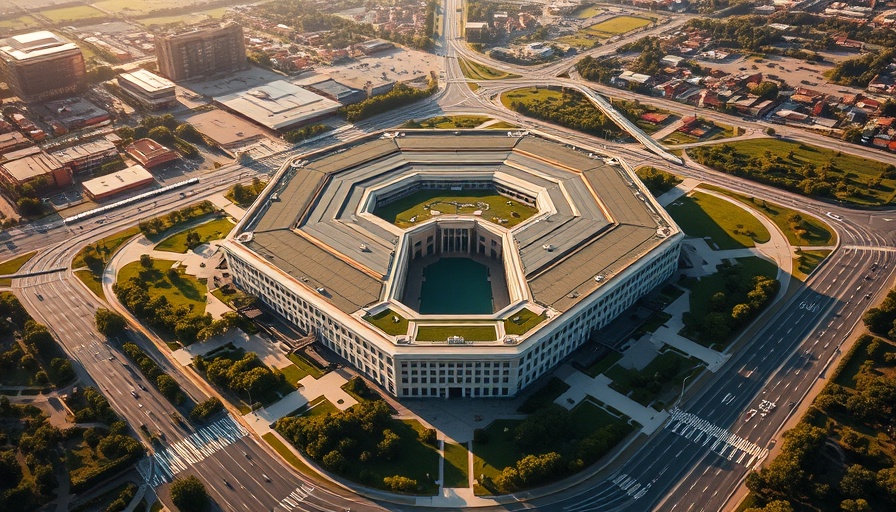
Trump’s Nostalgic Appeal: What Does It Mean?
When President Trump emphasized restoring the War Department's name, he was not merely reaching for nostalgia. Instead, he tapped into a profound sense of American pride and a past filled with military triumphs. For many, the name ‘War Department’ conjures images of victories in World War II and the decisiveness that followed. But while this reminiscing might feel empowering, it glosses over the historical context that led to the establishment of the Department of Defense, which aimed to prevent large-scale conflicts through a focus on deterrence.
Understanding the Shift from War to Defense
In a world that stood on the brink of nuclear conflict during the Cold War, President Truman's decision to create the Department of Defense from the War Department was historic. This name change signified a shift in focus from merely preparing for warfare to ensuring peace through strategic deterrence. The Cold War, characterized by indirect confrontations such as the Korean and Vietnam Wars, exemplified how the U.S. and the Soviet Union managed to avoid direct conflict—a pivotal achievement given the stakes involved.
What Historians Say About the Cold War
Several historians argue that the Cold War's greatest achievement was not military dominance but rather the active avoidance of superpower conflict at a time when nuclear weapons were a concern. The careful diplomacy that characterized this period was indispensable in preventing confrontations that could have escalated into catastrophic wars. Thus, the move to revert back to a more combative nomenclature raises questions about our current stance on global conflict.
The Message Behind Renaming the Pentagon
Trump’s idea to return to the War Department can be seen as an overt signal of a more aggressive U.S. stance on international dealings. As he promotes this nostalgia, it raises essential debates about American identity and the role military history plays in shaping contemporary policies. Critics warn that glorifying past military victories may overlook the importance of diplomatic solutions in today’s geopolitical climate.
Counterarguments: A Call for Diplomacy
On the other side of the debate, advocates for diplomacy remind us that the end of the Cold War marked a distinct turning point in international relations where collaboration became just as important as military strength. During a time of increased tension with nations like North Korea and Iran, there is a growing need to foster dialogue rather than a return to confrontation. By embracing diplomatic solutions, the U.S. can position itself as a leader in peacekeeping rather than a belligerent.
When History and Modernity Collide
The juxtaposition of America’s past military successes against today’s global landscape raises many questions: Can nostalgia for the War Department help navigate current conflicts? Or is it a misguided longing that risks igniting tensions further? With the world talking about peace and unresolved conflicts like the Ukraine war and the Middle East crises, this discussion becomes even more pertinent.
Reflecting on Leadership and Messaging
As we analyze Trump's intention behind this nostalgic sentiment, it's essential to consider the messages that American leadership conveys both domestically and abroad. What does invoking the War Department symbolize for future military policy and America's role on the global stage? These are critical questions that warrant attention as we continue to witness changes in how military power is utilized.
Your Role in Shaping the Narrative
In today’s socio-political climate, understanding the implications of such significant proposals is crucial for citizens. Engaging in discussions about military nomenclature, its historical relevance, and its ramifications in modern policy can empower individuals to voice their opinions on the direction of national defense. To contribute to this evolving dialogue, it’s vital to stay informed and participate actively in civic discourse.
The return of the term 'War Department' is much more than a title; it's a signal that reflects America’s relationship with its military past and present. As citizens, we must engage thoughtfully in understanding what this shift implies about our nation's values and future direction. Share your thoughts with your community, and encourage open discussions on the role America should play on the global stage.
 Add Row
Add Row  Add
Add 




Write A Comment